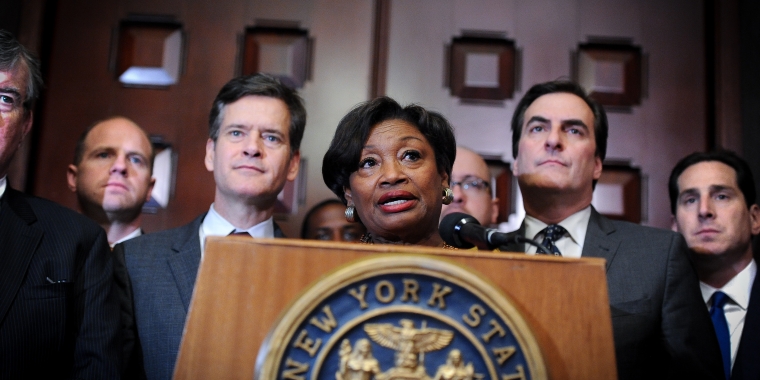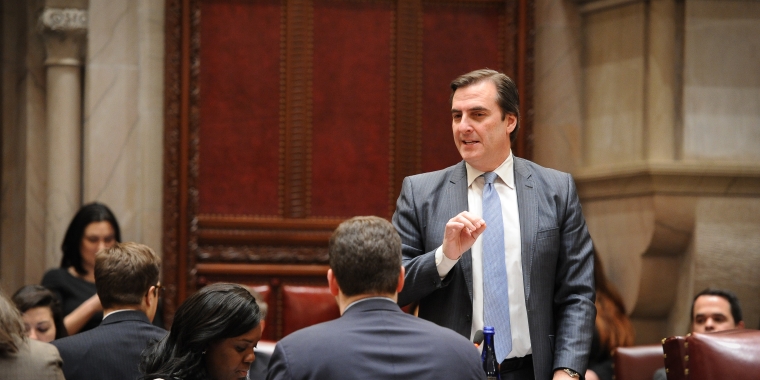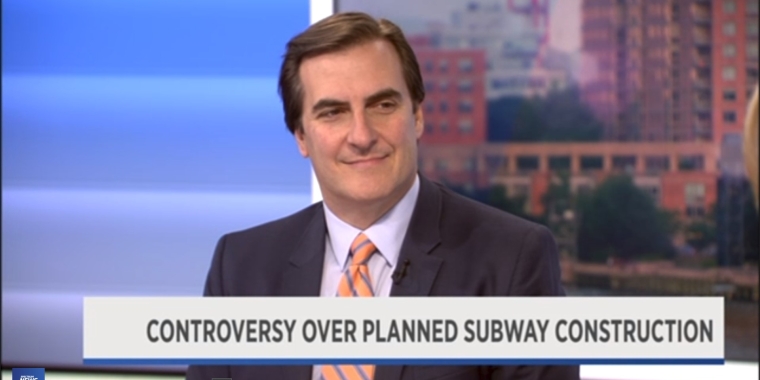
Wall Street Journal: New York Could Turn Hotels, Office Buildings Into Affordable Housing Under State Senate Bill

New York state could buy financially distressed office buildings and hotels and convert them into affordable housing for homeless and impoverished New Yorkers under a bill being considered in the state Senate.
The bill, introduced this week, is similar to a plan proposed by Gov. Andrew Cuomo during his State of the State speech in January. However, State Sen. Michael Gianaris, a Queens Democrat who wrote and sponsored the bill, said the Senate proposal mandates affordable units and would only be open to commercial buildings in distress and up for sale.
“We have known for decades that there’s a massive affordable housing crunch, so this is something that’s been in need for forever,” Mr. Gianaris said in an interview, noting that the governor’s plan is “vague” and could just create more market-rate or luxury housing.
A spokesman for the governor said the administration would review the bill.
New York City’s commercial districts have been hobbled by the Covid-19 pandemic. In Manhattan, the overall commercial vacancy rate increased to 13.3% in the third quarter of 2020, the highest number in 24 years, according to a report from real estate services firm Cushman & Wakefield.
As of Sunday, the city’s homeless shelter population was 52,010, which is lower than it has been in years. The state imposed an eviction moratorium during the pandemic, but housing advocates have said that the city still faces an affordable housing crunch.
Under the Senate bill, building owners could sell their properties to the state to allow for the construction and conversion of permanently affordable housing for people who are street homeless or living in shelters and for low-income residents.
The state could use federal money allocated through Covid-19 relief or other federally funded programs to purchase distressed properties, according to the bill. It isn’t clear how much money would be needed to make such purchases.
The bill would mandate that only hotels with fewer than 150 units could be converted to affordable housing. It excludes hotels in most of Manhattan.
Some of the converted properties would be operated by housing nonprofits and other organizations, according to the bill.
“What we’re doing now is finding this huge stock of buildings that are in distressed condition right now, so it’s a smart way to tackle multiple problems,” Mr. Gianaris said.
New York City Mayor Bill de Blasio’s administration supports the creation of affordable housing and is reviewing the bill, a spokesman said. Mr. de Blasio had previously been critical of the governor’s plan.
“This administration has built affordable housing at a record clip, and we share the sense of urgency to build even more as we build a recovery for all of us,” the spokesman, Mitch Schwartz, said in a statement.
Since taking office in 2014, Mr. de Blasio’s administration has financed 177,971 homes through its Housing New York plan, officials said.
Paulette Soltani, political director of the housing advocacy group Vocal-NY, said her group supports Mr. Gianaris’ bill because it gives priority to homeless New Yorkers.
“The legislature has a unique opportunity to make a tremendous impact on the lives of people who have long been ignored by Governor Cuomo and Mayor de Blasio,” Ms. Soltani said in a statement.
The bill has the support of the Hotel Trades Council union, whose members recognize the need for affordable units, a union official said.
James Whelan, president of the Real Estate Board of New York, the property industry’s main lobbying group, said in a statement that the organization supports building much-needed housing that includes affordable units. The organization supported Mr. Cuomo’s January proposal, which it noted is different from what Mr. Gianaris is pushing. But it supports multiple ways to create more affordable housing, a spokesman said.
REBNY has previously backed incentives for building owners to help facilitate conversions, an official said.
“New York City will remain a global commercial hub by creating more dynamic central business districts through strengthened retail and small business sectors and producing much needed housing, including affordable units,” Mr. Whelan said in the statement, adding that it will require collaboration between the public and private sectors.
Read the full story at the Wall Street Journal here.


